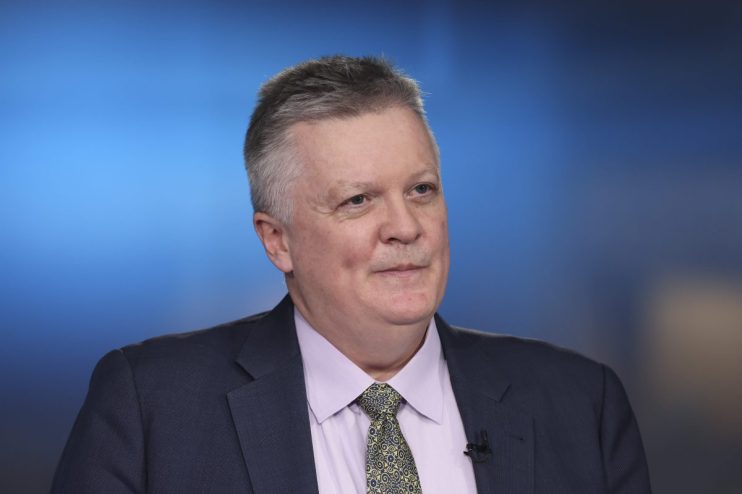Bank of England officials say rate cuts are ‘closer’ but jobs market remains ‘very tight’

The Bank of England’s chief economist struck a middle ground on the question of when to cut interest rates, suggesting that rate reductions were “somewhat closer” than at the Bank’s last meeting.
Speaking at an event in London, Huw Pill said the outlook for monetary policy had “not changed substantially” since the beginning of March.
“We are now seeing signs of a downward shift in the persistent component of inflation dynamics,” Pill said.
“But we still have a reasonable way to go before I am convinced that the persistent momentum in underlying inflation has stabilised at rates consistent with achievement of the two per cent inflation target on a sustainable basis,” he continued.
Over the past year or so, Pill has focused his attention on three measures of inflationary persistence: wage growth, services inflation and the tightness of the labour market.
Some progress has been made on all of these measures in the past two months. However, progress has not been quick enough to dramatically advance his expectation on when interest rate cuts might begin.
“I do think that the persistent component of inflation is being squeezed out of the system by restrictive monetary policy,” Pill said. “But I don’t see reason to believe that is happening more rapidly or profoundly than I expected six months ago”.
The pound strengthened slightly after Pill’s speech was released, while equities moved lower, suggesting markets were expecting more dovish signals.
Last week, Dave Ramsden, another rate-setter at the Bank of England, said he was growing “more confident” inflationary pressures were receding, suggesting inflation could stay close to two per cent for the next three years.
Markets expect the Bank of England to start cutting interest rates in August, with two rate reductions priced in for 2024.
However, there are still hawkish voices on the MPC. In a speech earlier today, Jonathan Haskel, one of the Committee’s more hawkish members, said that interest rate cuts should still be “a long way off” due to the tightness of the labour market.
“We had a very tight labour market and we still have very tight labour market,” Haskel said.
The Bank of England has long been concerned that a tight labour market will fuel strong wage growth, keeping cost pressures high in the labour-intensive services sector.
Figures out last week showed that wage growth eased less than expected in the first few months of 2024 while services inflation also remained at a more elevated level.